
Amama is know for its big statement jewellery
Loud, edgy, dramatic — jewellery today resembles art in a gallery. Driven by a demand for bolder pieces, a crop of young designers are creating jewellery that deliberately moves away from traditional patterns. From funky reinterpretations of heirlooms to intricate hair buns, rhinestone gloves, metal nail claws and over-the-top necklaces, these creations defy trends and encourage wearers to make a personal statement. We look at options for your wardrobe.
Roma Narsinghani
For Roma Narsinghani, venturing into jewellery design seemed like a fortunate twist of fate. In 2016, when in the midst of her wedding preparations, she stumbled upon a stone-adorned hair bun cage that was a family heirloom. “Intrigued, I decided to put my own creative spin on it for one of the ceremonies. This sparked a chain of experiments, eventually leading to the birth of the first few pieces,” says Roma, who launched her eponymous brand in 2017.
Though offbeat, the hair buns have remained a constant in her collections; manifesting in different shapes and designs, from hexagon to spiral and encrusted with Swarovski crystals and rubies. These are her bestsellers, followed by chokers and rings.
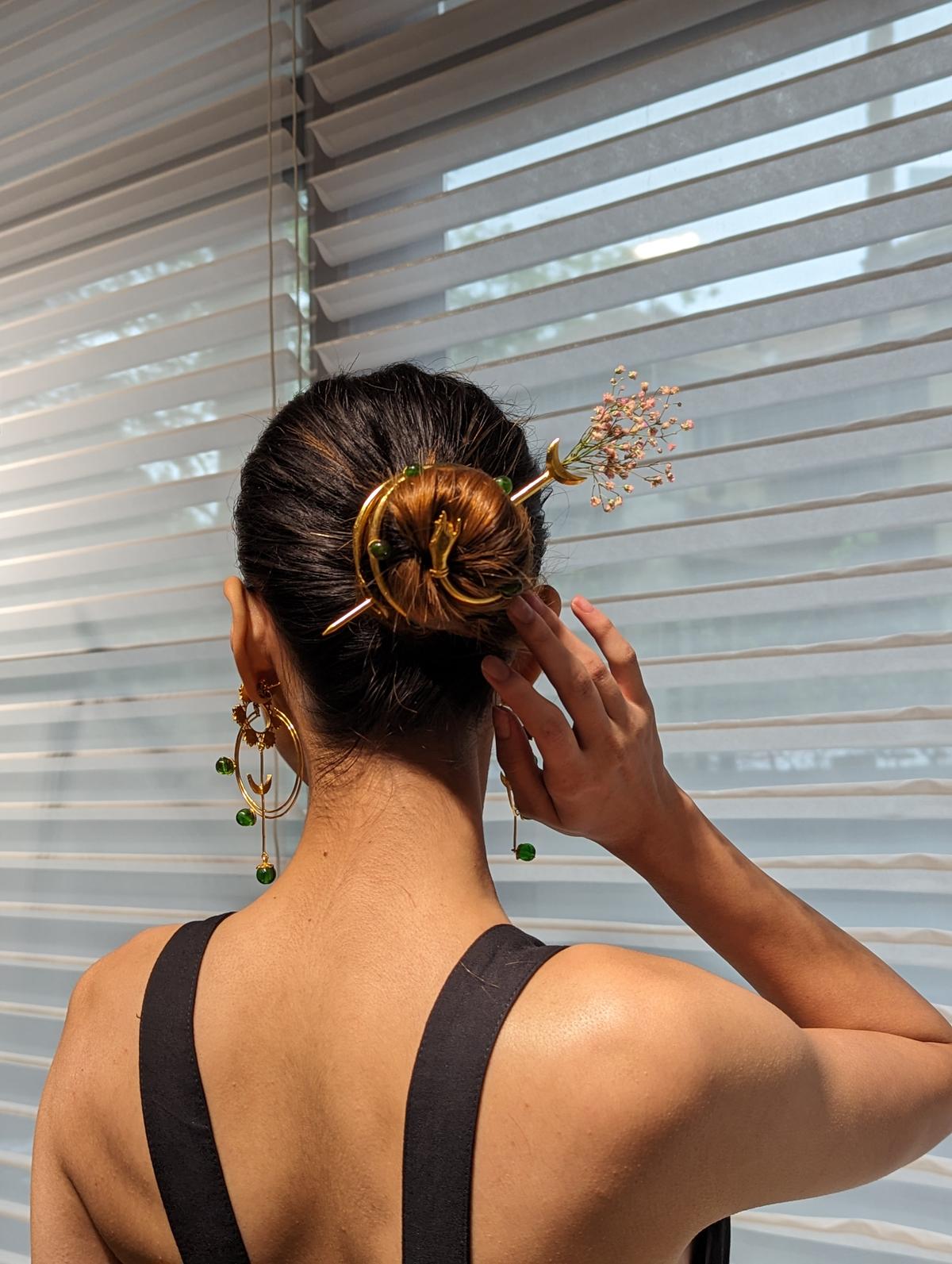
A hair bun
“My jewellery embodies a unique fusion of motifs and structural elements, drawing inspiration from a juxtaposition of raw textures, culture, travel, architecture and the self,” says the Mumbai-based designer. Her first collection, titled ArchGeo, was inspired by Mumbai’s Art Deco heritage and architectural plans. The entire collection was hand-made and featured big, bold designs.
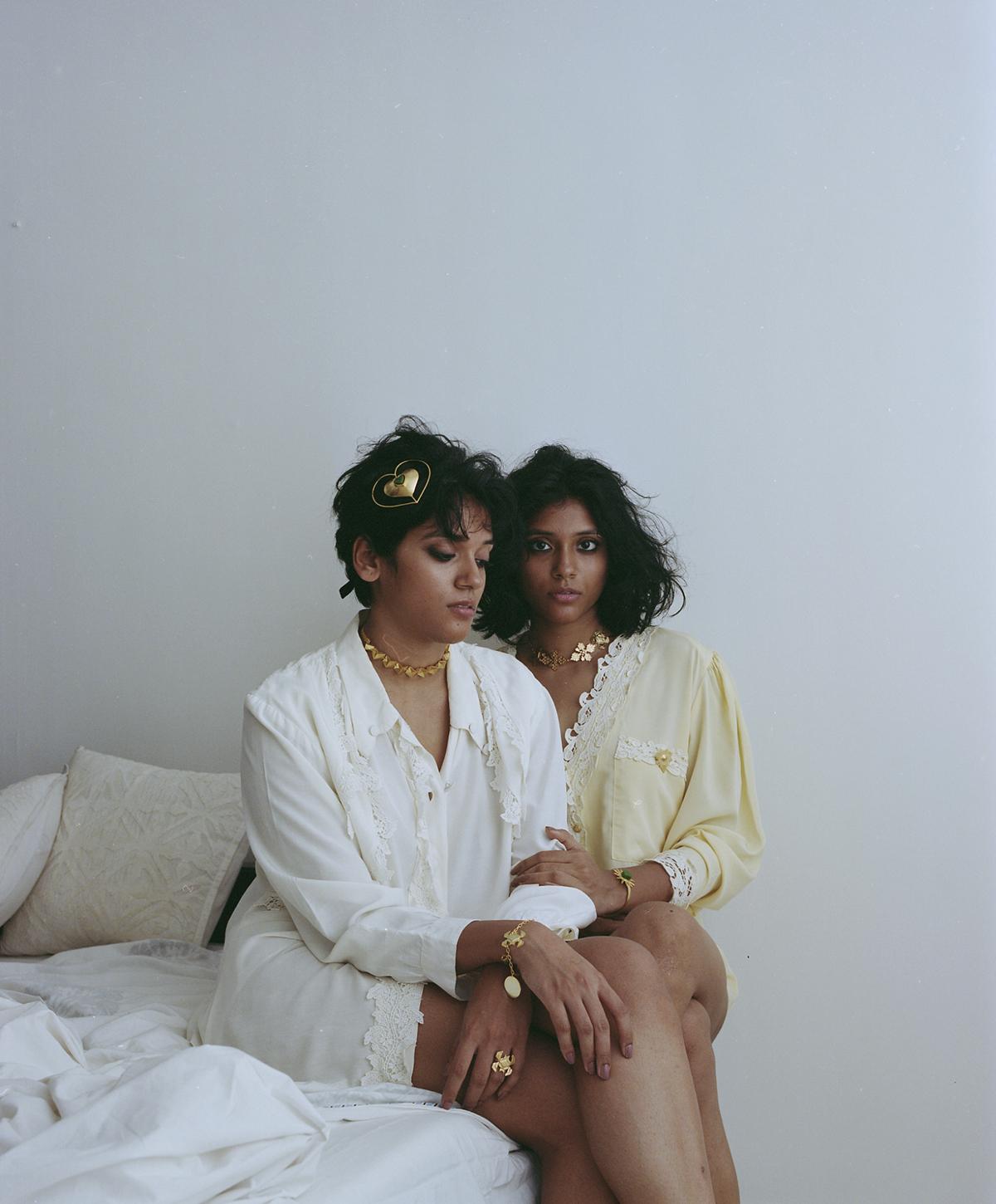
Roma Narsighani’s jewellery embodies a unique fusion of motifs and structural elements
“While I admire the beauty of delicate designs, I have always felt compelled to explore the same concept in a more unconventional manner. My designs are a reflection of my evolving journey as a designer, constantly influenced by my surroundings, experiences, and personal growth,” she says.
Roma Narsinghani
In that vein, her latest collection, Lola & Koki, is a heartfelt tribute to her Sindhi heritage and also has pieces named after food, like rabri studs and aloo took brooch, adding a touch of whimsy. “It’s inspired by the essence of Sindhi rotis — lola represents the sweet roti, while koki is the salty one. Crafted with eco-brass and adorned with bio-material algae beads created in collaboration with Aradhita Parasampuria, each piece reflects my journey of rediscovering my roots.”
Roma’s unconventional design aesthetics resonate with today’s clientele, which is seeking pieces that reflect their individuality. Some of the pieces have been crafted for special collaborations, such as the striking face gear designed for Amit Aggarwal’s fashion week finale and the avant-garde head gear created for Chola the Label’s Lakme Fashion Week showcase.
Roma adds, “Currently, I am exploring pixel patterns using Swarovski crystals. One of my ongoing projects involves creating a metal mesh top adorned with skin-coloured crystals, forming a mesmerising pattern that resembles a woman’s torso.”
Prices start at ₹3,000 and go up to ₹20,000. Available on romanarsinghani.com
Amama
Amama’s nail claws look menacing but sexy. It is something you would expect to see on a stylish Disney villain like Maleficent or Cruella de Vil. But the idea behind this bijouterie is quite simple. “A lot of women do not have the time to get their nails done, they can just pop these on,” says Nikita Gupta, founder of Amama.
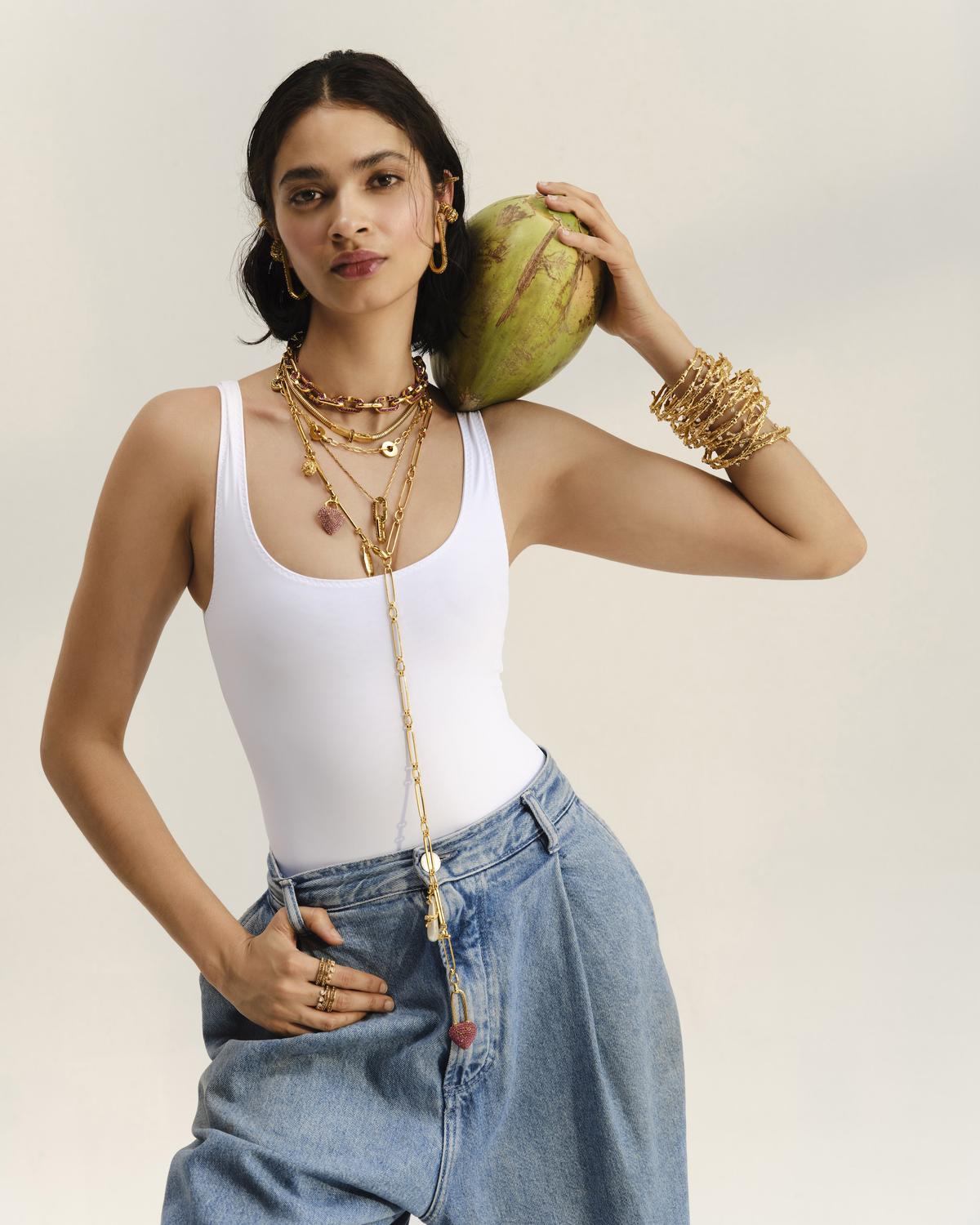
Lumina by Amama
Made of metal with pearl and stone embellishments, these are her bestsellers along with earrings that have “gone viral”. “For example, we sold around a thousand of the Infinity danglers worn by Jacqueline Fernandez, even our hand-embroidered Krisha earrings are popular,” says Nikita, who started her band in 2017.
The brand is an ode to Nikita’s grandmother who pampered her with silver jewellery. But before getting into the jewellery business, Nikita says she spent a lot of time scouring the markets of Paharganj and Chandni Chowk looking for interesting pieces. Eventually, she put her discoveries up on her blog posts. “People started asking why I wasn’t selling these. So I started curating jewellery and that is how Amama started,” says Nikita, adding, “Our first lot had Afghan jewellery but I added my tweaks to them and it did well. I had some ideas of my own too and started working with karigars. I came up with our next line Rangrez for which I created embroidered jewellery and jewellery on fabric; and the success of that is what got us here.”
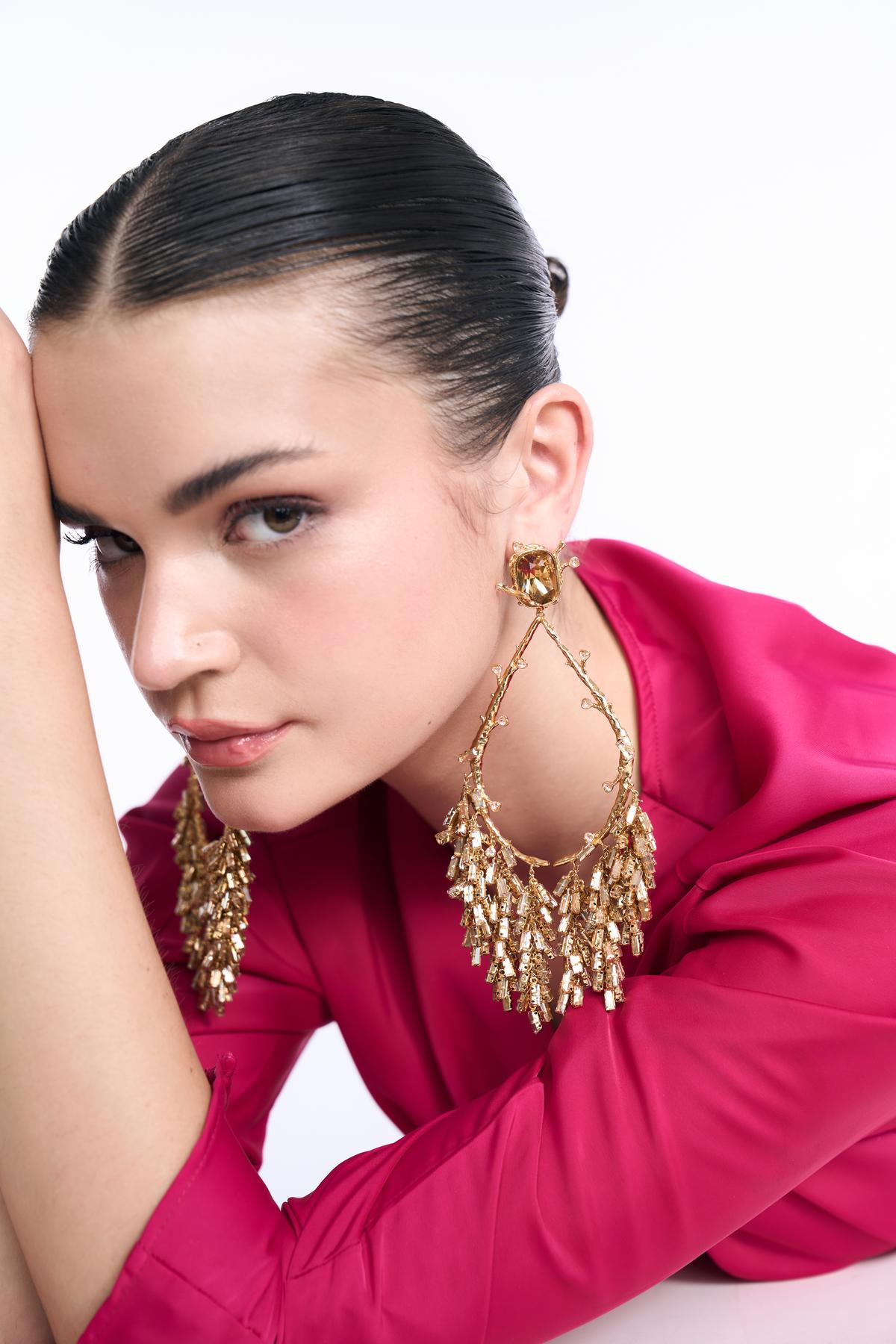
From two a day, Nikita found her orders increasing to almost 100. Last year, Amama started in-house manufacturing in their unit in Noida. “We are a team of 100, of which 60 are karigars,” she informs.
In 2023, they launched their stores in DLF Promenade and DLF Avenue in Delhi . They also have a new store coming up in DLF Mall of India, Noida. Amama is also doing bags and wants to get into the accessory space. “From weddings to vacations, we want to cater to all occasions,” says Nikita who studied Retail and worked with brands such as Louis Vuitton and Forever 21. Her new launch, Lumina, has blingy holiday favourites like statement resort bags, hair accessories, studs enhanced with coloured crystals and pearls in 22 carat gold.
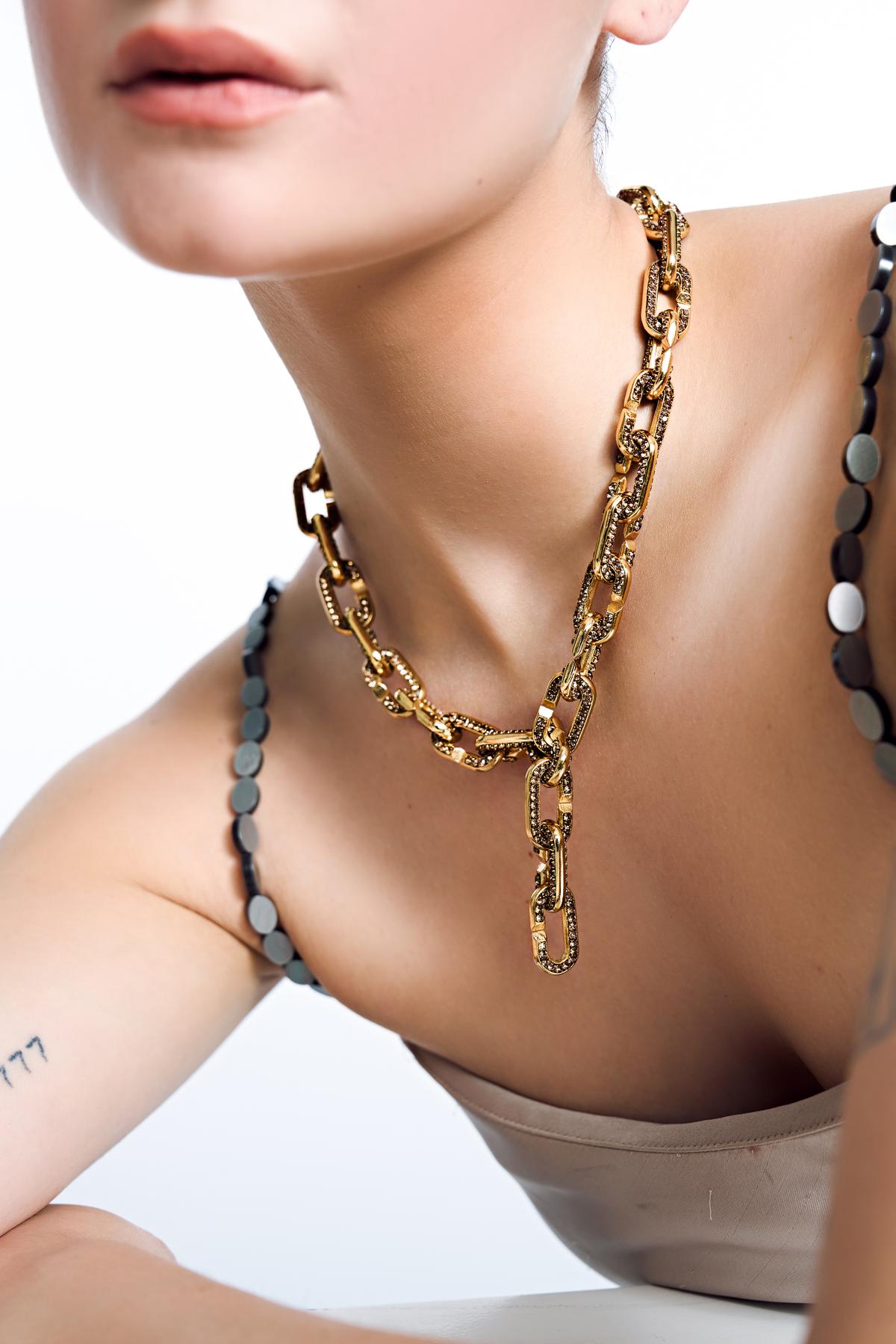
“We are known for big statement jewellery. When you wear something, people should notice it,” she adds. She is also aware that copies of her designs often end up in local markets. But as Oscar Wilde said, “Imitation is the sincerest form of flattery…”
Prices start at ₹1,500 and go upto ₹15,000 on amama.in
Anatina
Aakanksha Kotawala is from a family of jewellers. “But what my family does is completely different from what I do,” says Aakanksha, a brand developer who started Anatina, her own jewellery label in 2021. “It’s global in nature, contemporary but rooted in our culture, and speaks of our craftsmanship,” she says.
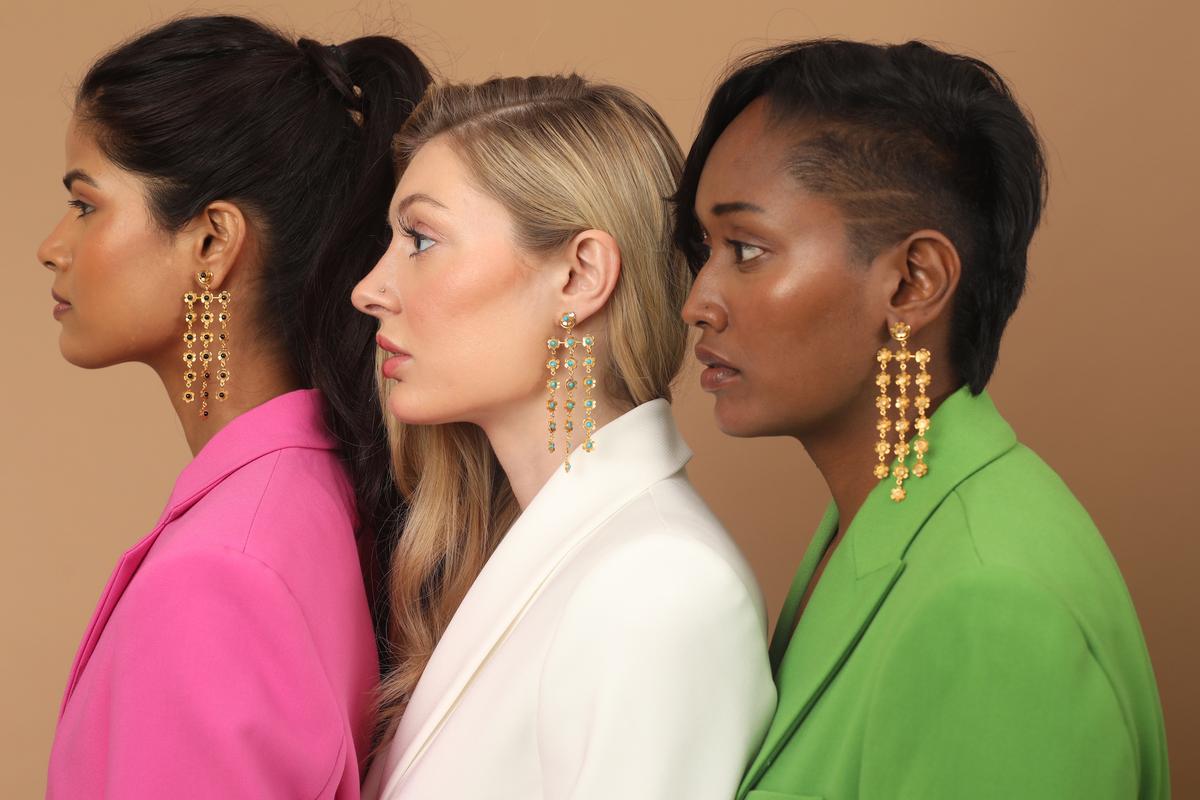
To begin with, Aakanksha was not sure if she wanted to be part of this trade. But, she was inspired by the 250-year-old legacy of her family business. “In India we make everybody’s jewellery, Jaipur is a hub, but not many brands from here are really known well internationally. Our country is so rich in craftsmanship; using that I wanted to give jewellery a new twist,” she says.
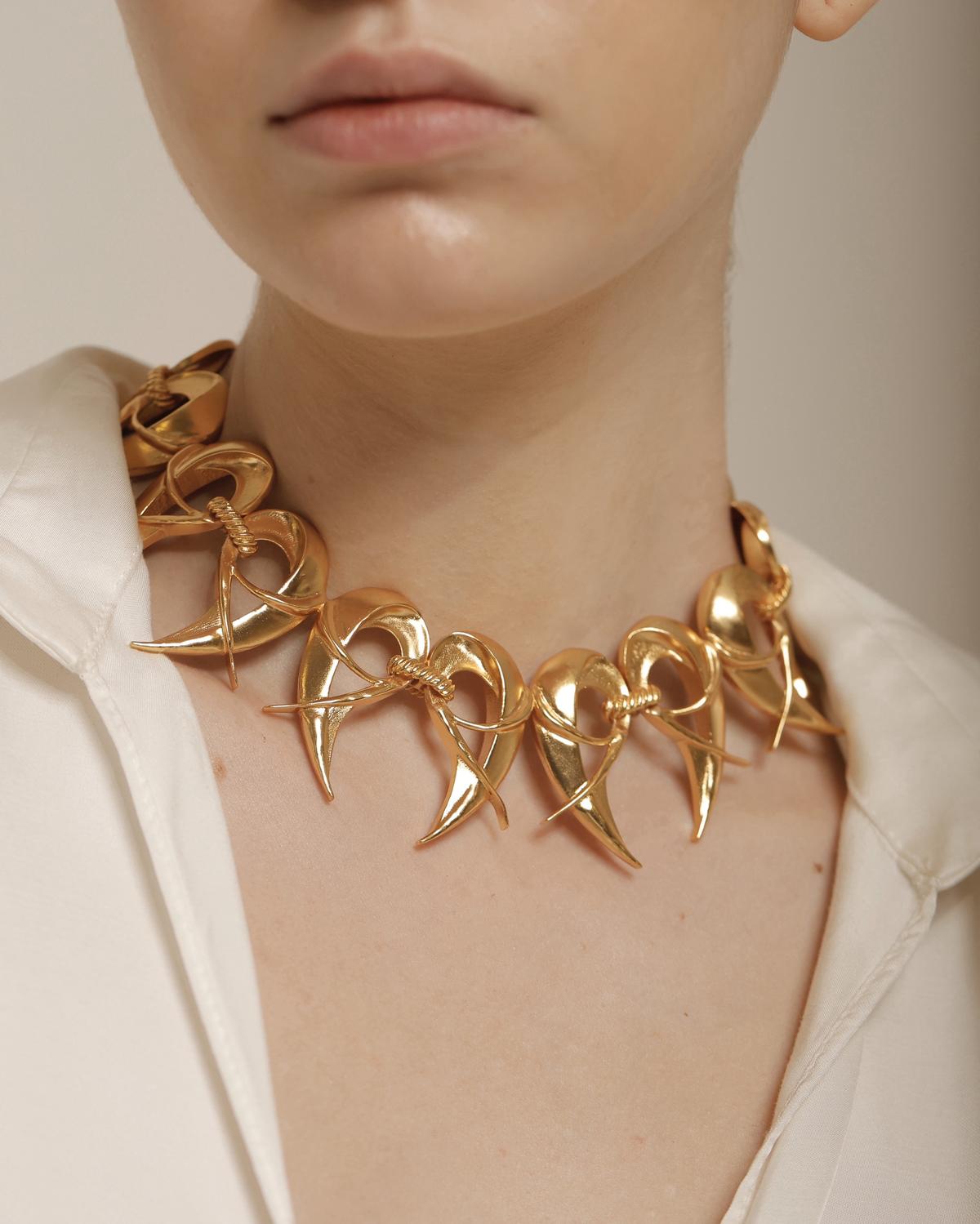
There are hairpins, stackable rings, chokers, chunky necklaces, pendants, earrings, bracelets… The brand is an extension of herself. I like pieces that have a story. “In terms of design sensibility, every collection has an emotional or personal meaning. No two pieces look alike. One could find pieces that are minimal or statement or Roman in nature or full of texture,” she says.
Aakanksha’s creations are made of brass, or 18 and 22 carat gold plated. She adds that they work with stones like amethyst, malachite, aquamarine, pearls.
When Aakanksha started Anatina, the demand for offbeat jewellery was in its nascent stage. The market acceptance has grown over the years. “People weren’t keen on wearing fashion jewellery. The mindset was that if you can’t afford real jewellery you go for this. But that has changed. The barrier between fine and fashion has narrowed. Peoples acceptance of design has been a game changer,” says Aakanksha.
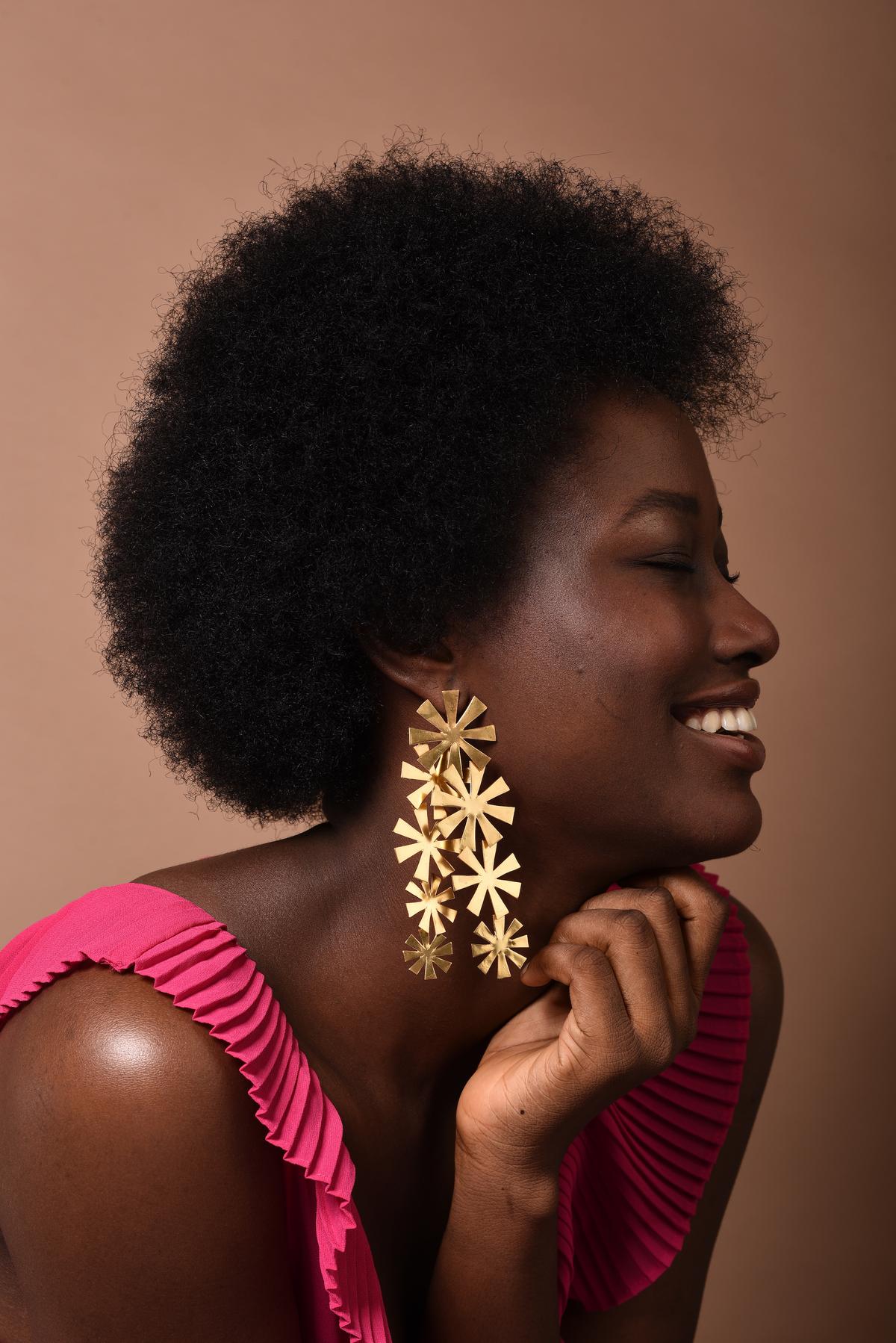
Anatina
| Photo Credit:
PRIYADARSHINI PAITANDY
Her clientele is of all ages. “A 70-year-old recently wore our Heart of Gold necklace (a collection of 14 hearts held together by French rope and ovular links). It’s our statement jewellery and she wore it with so much finesse and paired it with a dress. It looked great,” she smiles. Eyes on the Prize, another statement necklace was sported by models at the last edition of the Paris Fashion Week, she says.

Aakanksha Kotawala
Prices start at ₹4,000 and go up to ₹16,000. Available on shopanatina.com
MNSH
Have you seen a scarf that is actually jewellery? Or a glove that doubles up as a rather blingy bijoux? Made of rhinestone, these accessories are some of MNSH’s bestselling pieces. The brand wants its designs to be conversation starters.
“Earlier people were conservative but after COVID, YOLO has become the mantra and people are open to trying different things,” says Mansha Mittal whose brand MNSH is a pandemic baby. “We just completed three and a half years and it has been a fun journey,” she says over a call from Mumbai.
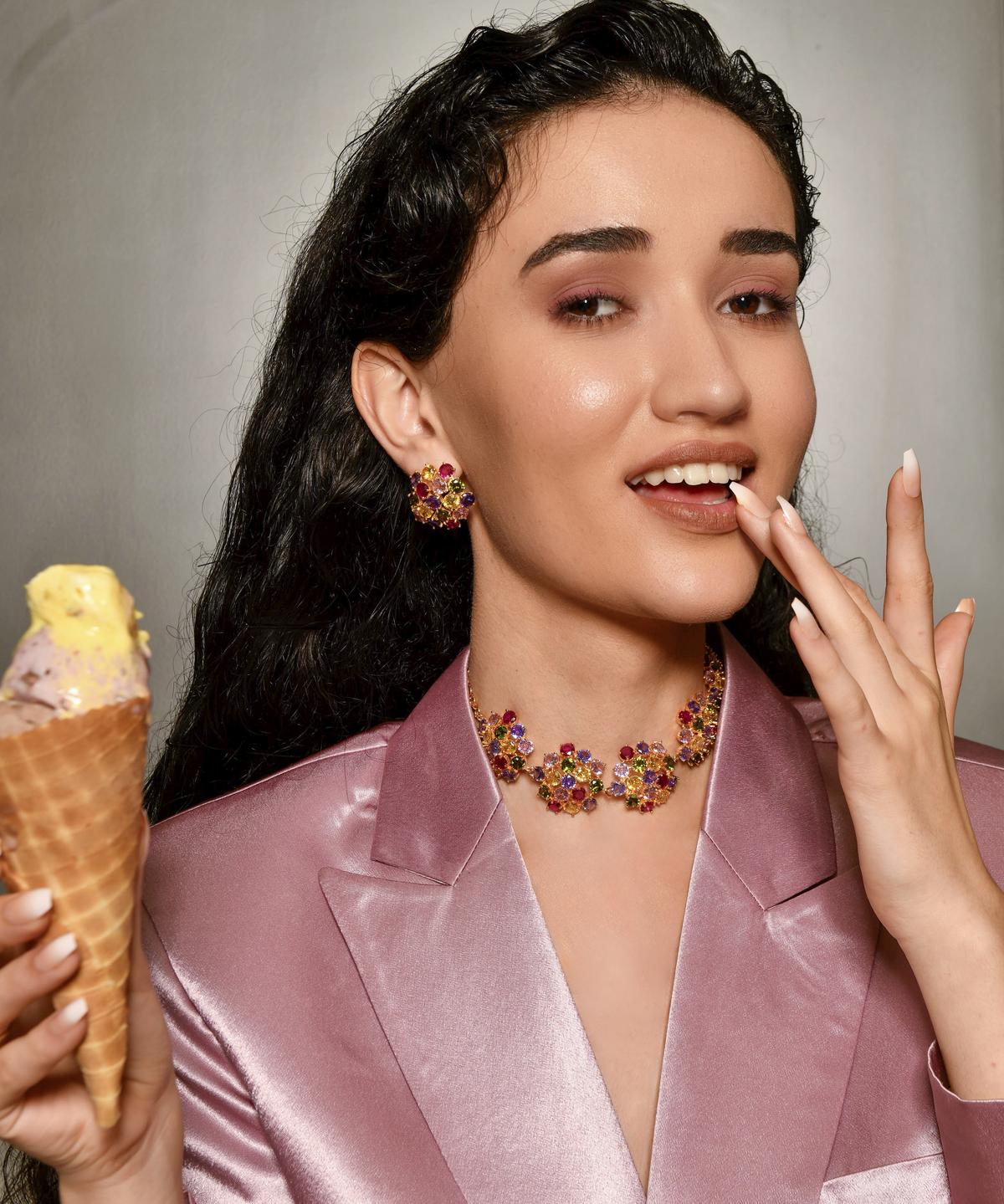
MNSH wants its designs to be conversation starters
A student of Apparel Design, Mansha admits to not having any background in fashion jewellery. But it is her love for ornaments that made her take to this field. “I’ve always been a fashion jewellery buff. I poured myself into it,” she says, adding, “I used to buy from a lot of brands. After buying three or four products from the same brand, the pieces would all start looking the same. I was looking for different designs for different occasions. There weren’t too many contemporary designs that you could wear both with a sari and jeans,” says the designer who grew up in Los Angeles and Singapore.
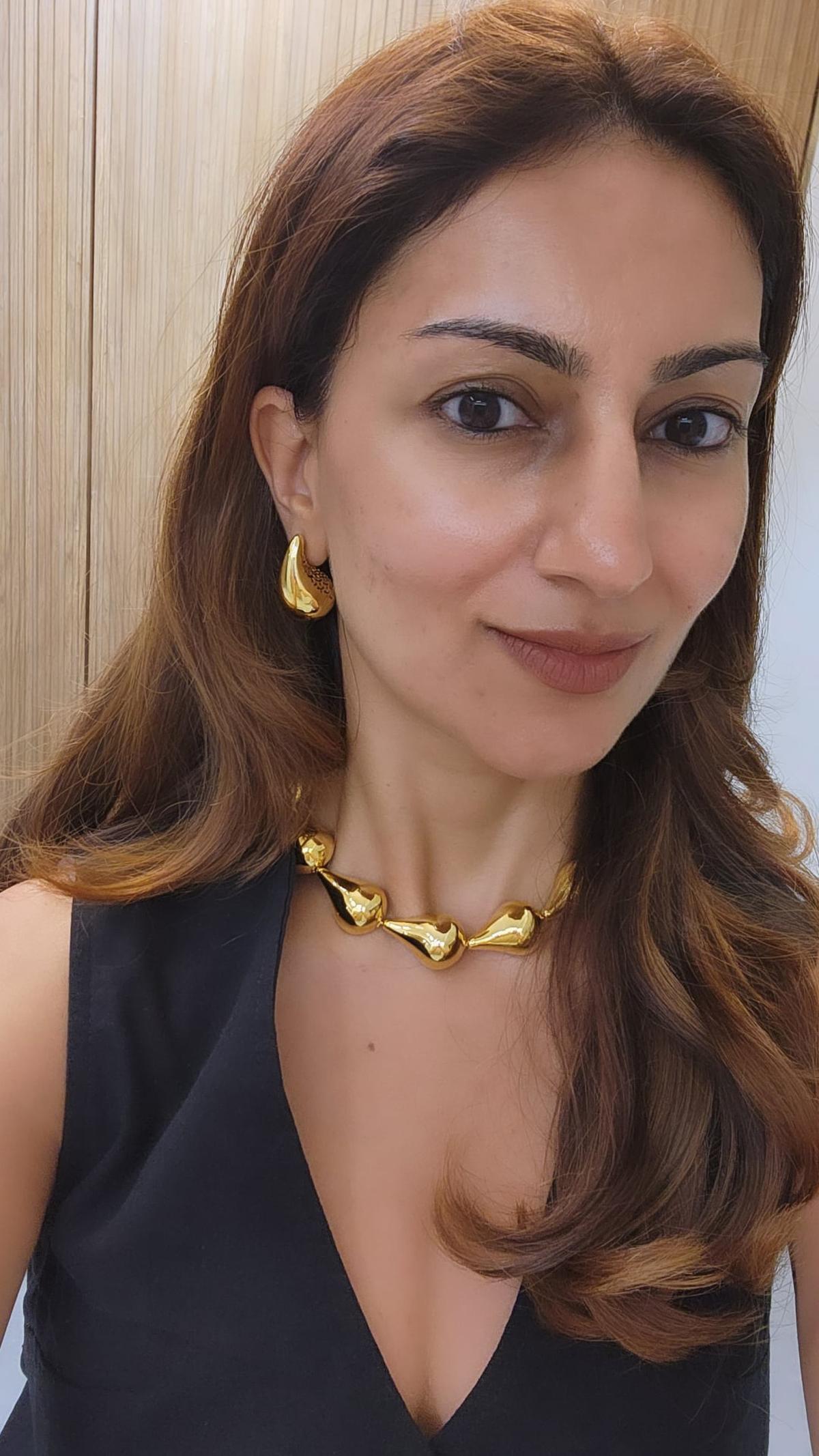
Mansha Mittal
When exploring the market, Mansha also noticed that the pricing for quality jewellery was on the higher side. She decided to create something trendy, chic, and priced affordably. “My clients want something distinct. I look at what is happening internationally. Every individual is different and so is their personality; therefore brands have to cater to that,” she says.
Which is why at MNSH, to keep up exclusivity, they believe in phasing out their collection. Twenty-odd pieces are made for each design. Only the classics remain. “We don’t do mass production,” she says. The range here is so varied that it has designs for 18-60 year olds. “Recently Zeenat Aman was styled in our Baroque pearl necklace,” she adds.
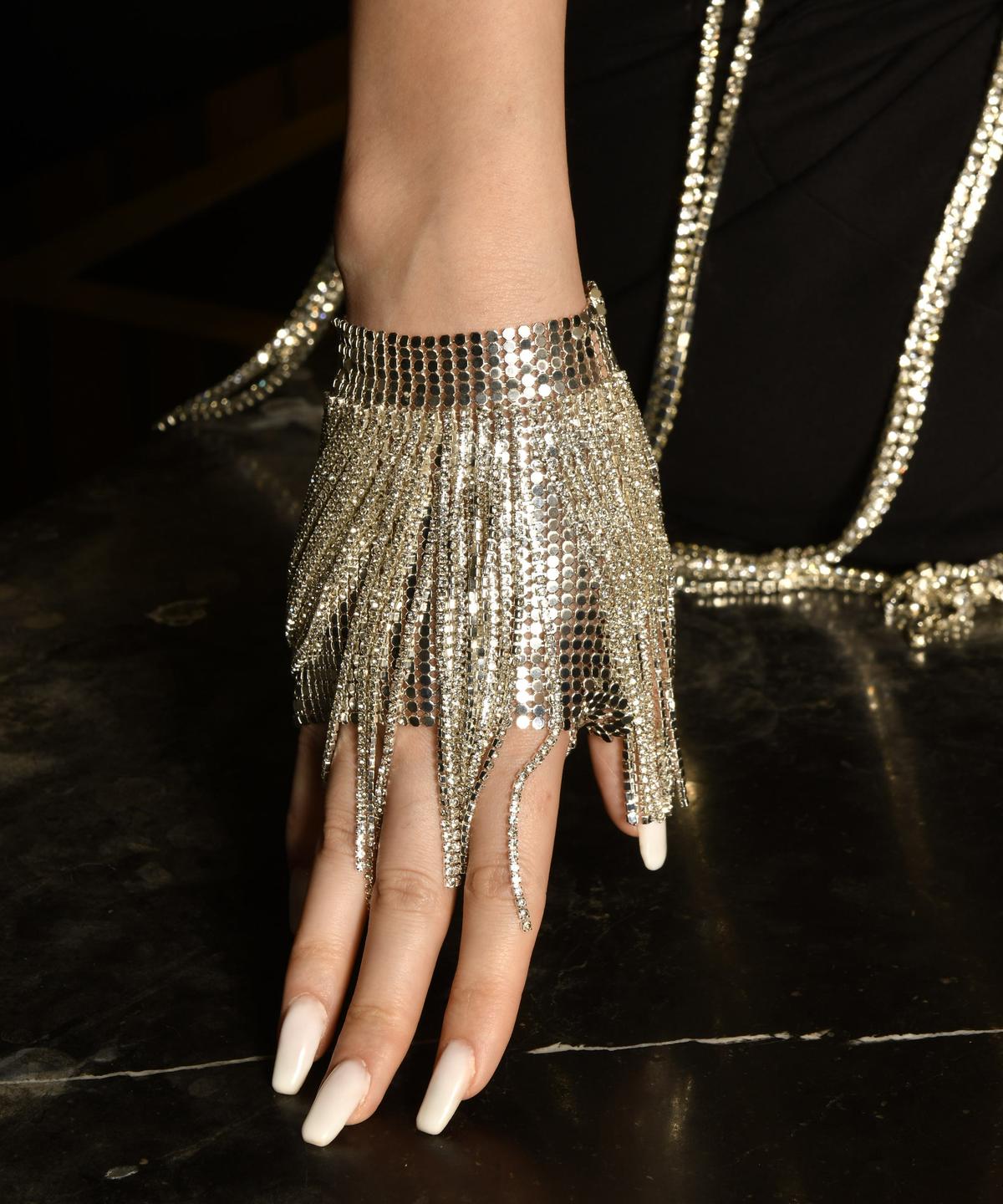
MNSH has just launched its Boheme collection, which embodies summer. There are chains and bracelets in fun colours with stones like malachite and lapis. “There’s a lot of colour play, stacking and layering involved,” says Mansha, who normally does brass and gold plated jewellery but is venturing into stones like cubic zirconia and glass stones. She is also launching a stack of bangles with the words nidar (fearless) and shakti on them as a tribute to the women of today.
Price starts at ₹2,500 and goes up to ₹15,000. Available on mnsh.co






